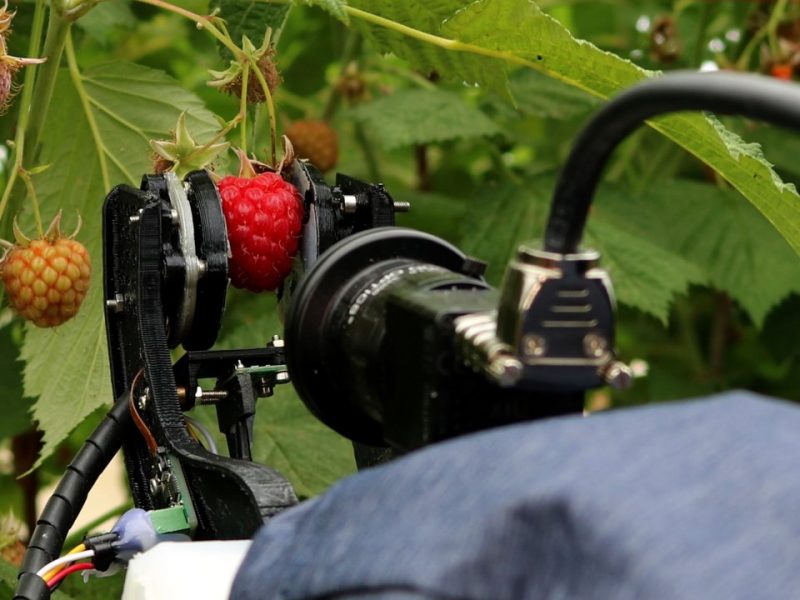University Spin-off Develops Raspberry Robot Prototype to Solve Labor Shortage
Fieldwork Robotics, an off-shoot of the University of Plymouth in the United Kingdom, put its robotic raspberry-picking robot through its first paces and is set to continue to development this fall, with hopes of manufacturing the robot by 2020. The company signed a deal with soft-fruit grower Hall Hunter Partnership, which supplies fruit to one of the largest grocery store chains in the UK, according to a story on TheGuardian.com.
The prototype can “see” the fruit through machine learning techniques to determine if it’s “supermarket ripe” and pluck it from the stem without damaging it. Farmers around the world may benefit from the robot as a way to deal with labor shortages, especially as immigration becomes an issue. “Brexit-related” labor shortages have already hit the UK hard. Developing the technology cost nearly $900,000.
BusinessInsider.com described the planned robot prototype as having four arms, which would enable it to pick more than 25,000 raspberries a day, “well over the 15,000 average that a human could rack up in an eight-hour shift, for example.” The publication quoted one of the backers of the robot, developed by Dr. Martin Stoelen, as saying the machine is expected to pick one raspberry every 10 seconds.
A story in the journal ElectronicsWeekly.com said it could solve the problem of keeping labor costs down for “back-breaking work.” Once it’s successfully deployed, the robot may be adapted to harvest other delicate fruits and vegetables, such as tomatoes.
According to a press release on the University of Plymouth website, Hall Hunter Partnership Chief Operating Officer David Green explained the necessity thus:
“As has always been the case, for agricultural and horticultural businesses such as ours to stay competitive in developed economies, we must embrace and invest in the latest technological innovations as they evolve. At HHP we foresee that the direct application of robotics platforms for harvest and husbandry activities, combined with the spin-off benefits of additional data collection and microanalysis they make possible will play a significant role in increasing product quality, productivity and yields in the near to medium term.”








Leave A Comment